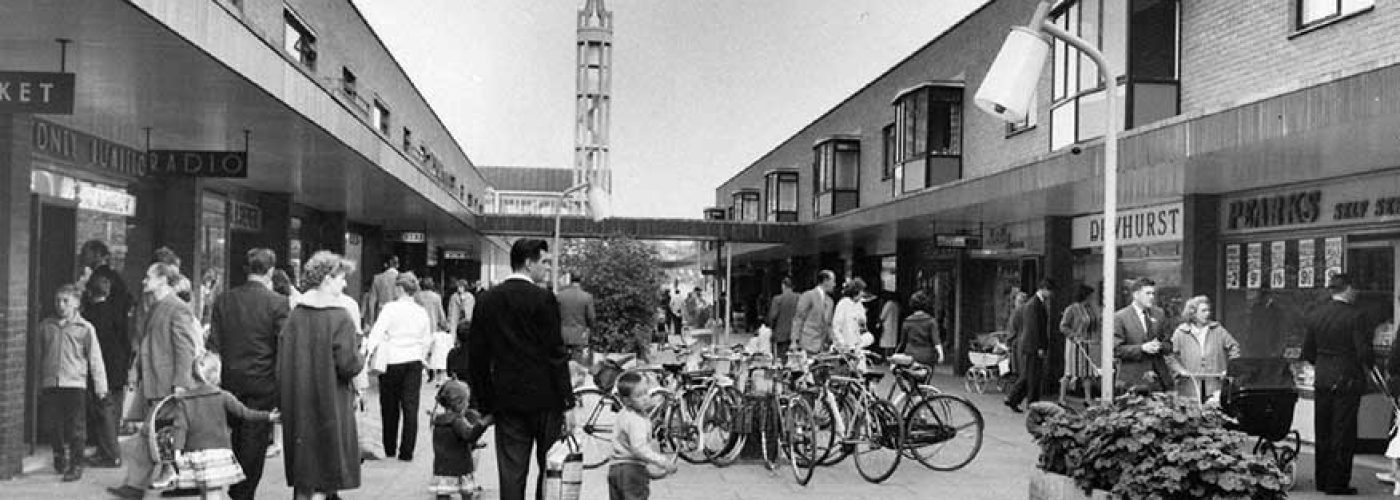Research by the debt advisory specialists, Sirius Property Finance, reveals that 42% of UK consumers rarely, if ever, take a trip to their local high street, as commercial developers are urged to find ways of tempting shoppers to return and, in doing so, help local communities and economies thrive.
The survey of over 1,000 UK consumers, commissioned by Sirius Property Finance, asked consumers about their shopping habits and how frequently they headed to their local high street.
When asked how often they visit, 32% stated that they rarely head to their high street, while a further 10% don’t visit at all.
This reluctance to visit their bricks and mortar high street is largely a result of online retail options, with 54% saying they are likely to look to purchase something online before heading to their local retail outlets.
And while 21% say that the internet is simply more convenient, other common reasons for avoiding the high street include limited parking availability (24%), a poor variety of shops (22%), and high prices (14%).
These factors mean that the most common reason to visit the high street is not general retail, but instead supermarkets and grocery shopping, which 27% say is their main reason for visiting.
19% say they make the trip to take advantage of cafes, bars, and restaurants, while 15% say it’s for health and beauty services such as hairdressers and nail salons.
A further 15% say they’re looking to make clothing and fashion purchases, 12% are in the hunt for home and decor outlets, 6% are visiting for entertainment such as cinemas, and 4% are shopping for electronics and technology products.
This means that, in total, just 32% are visiting the local high street for retail purposes, while services and experiences account for the remaining 68%.
When asked what would tempt them to visit the high street more often, general retail is once again trumped by other priorities.
21% say that more free parking areas would be a significant draw, while 17% say they’d like to see more local and artisan markets and craft stalls.
10% want more green spaces and gardens, and another 10% are looking for more in-store incentives and experiences.
Other things that could tempt people to spend more time on their local high street include pop-up shops and temporary exhibitions (9%), outdoor seating and communal areas (9%), regular events like concerts or festivals (9%), pedestrian-only zones (8%), and interactive technology installations (1%).
Head of Corporate Partnerships at Sirius Property Finance, Kimberley Gates, commented:
“We’ve seen a substantial shift in consumer behaviour in recent times and so the decline of the high street is by no means the fault of property developers, nor is it exclusively their responsibility to try and breathe life back into physical, local retail districts, but they certainly have an important role to play in the rejuvenation.
When looking to ensure the future good health of the high street, commercial developers can look towards the things that people say they want – improved infrastructure, attractive outdoor areas and a more diverse range of outlets.
When the high street was born, it had no direct competition. But with the arrival of shopping centres and online shopping, the high street must now find a way to offer something that the internet cannot
This means experiences, community, socialising, pride in the local area, and an understanding that today’s consumers have plenty of options. They need to be given a reason to frequently visit the high street and our commercial developers can play a big part in achieving this. When they do, the benefits for local communities and economies will be enormous.”
Survey results
Full survey results can be viewed online, here
Building, Design & Construction Magazine | The Choice of Industry Professionals





